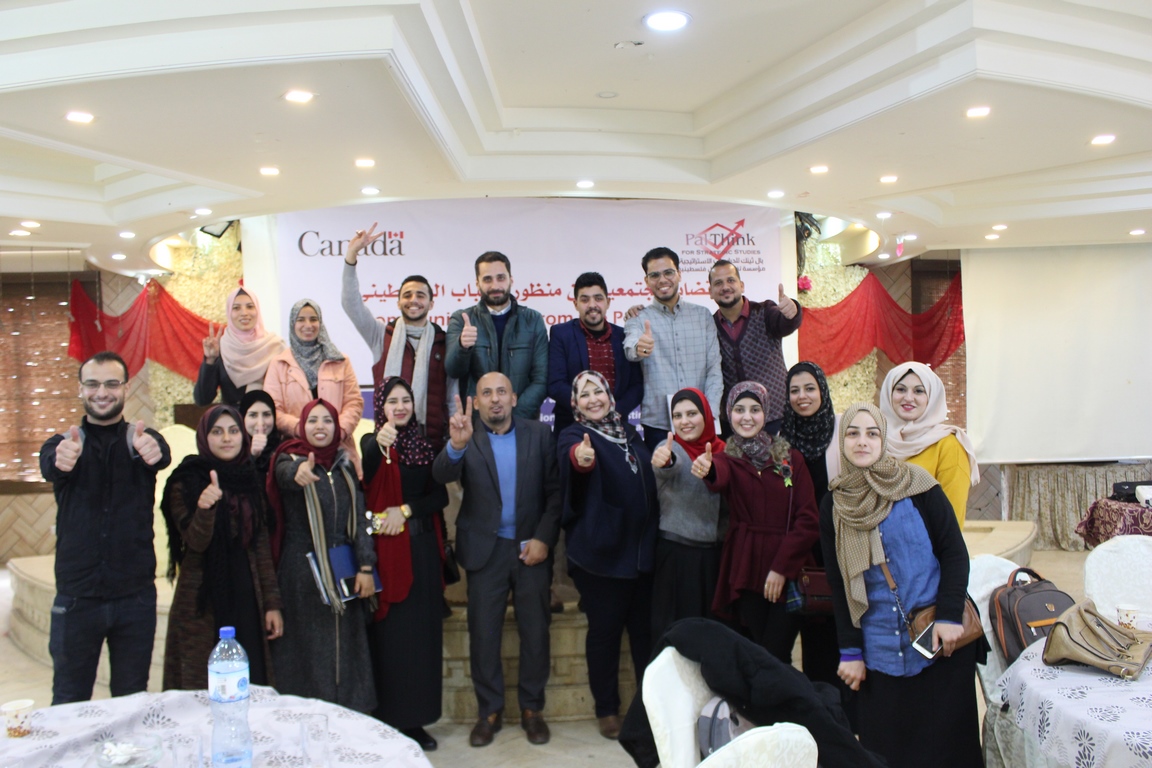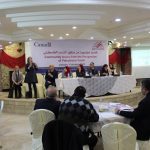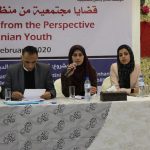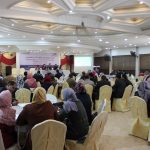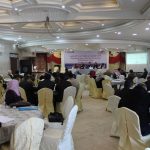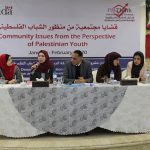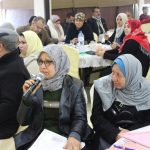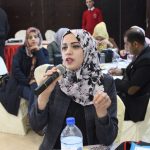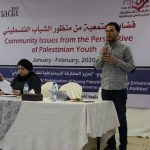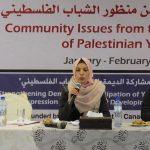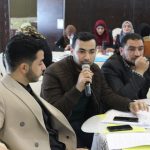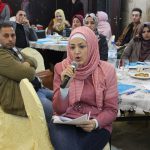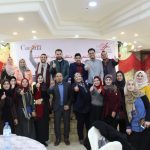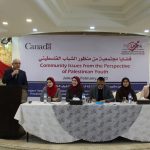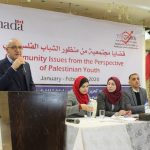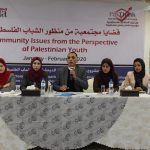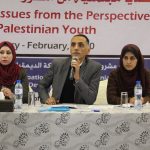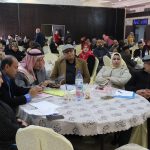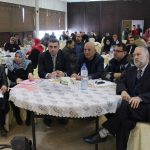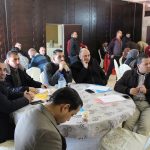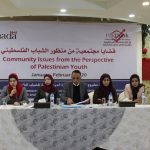Pal-Think for Strategic Studies organized the final discussion session on “Community Issues from the Perspective of Palestinian Youth” through which 7 participants presented 5 research papers. This event was within the activities of “Enhancing Democratic Participation for Palestinian Youth” project funded by the Government of Canada and that began in September 2019 and lasted till February 2020. This session was attended by Mrs. Robin Wettlaufer, Representative of Canada to the Palestinian Authority, and Ms. Andrea Niklaus, First Secretary at the Representative Office, and a number of elite academics, researchers, activists and intellectuals.
Director of Pal-Think, Mr. Omar Shaban, opened the session by welcoming the audience and thanking the representative of Canada, saying: “This project funded by the Government of Canada is short in time, but the results for the trainees are amazing. Today, in this third session in a series of sessions that Pal Think carried out, we present five research papers that are the result of a continuous effort for months in a row, and we will release soon a booklet containing 11 research papers that the trainees produced throughout the project period; these papers to be a scientific reference for researchers. In Pal-Think, we exert our utmost effort to improve the concept of scientific research for youth in Palestine.”
In a speech, Ms. Robin emphasized Canada’s support for the Palestinian people in their rights and the support for a two-state solution, noting Canada’s interest to see peace achieved, and that Canada will continue to support the Palestinian people and to strengthen the role of Palestinian women and their participation in all spheres of life.
In a meeting with the participants of the project, Ms. Robin expressed her admiration for the participation of young women in the project and that this is a good indication of the woman’s awareness of the necessity of activating their basic role in Palestinian society, saying that Canada is keen to support Palestinian youth and study their needs so that this assists to empower young people and help them find solutions for pressing crises which youth face due to political, economic and social factors.
Following the session, Talal Abu Rukbaand, Political Researcher, moderated the first discussion, and said: “Pal-Think works hard to localize knowledge because 90% of published researches about Palestine were written by foreign researchers and the remaining 10% is based on foreign researches”.
The trainee, Sahar Lubbad, presented her research paper entitled “Youth participation in neighborhood committees: between reality and expectations,”; it showed the reality of youth participation in Gaza neighborhood committees, and affirmed that their participation is modest, in addition to the lack of elected committees.
As for the two trainees, Yasmine Al-Mabhouh and Amal Abu Qamar, they shed spotlight through their research paper entitled “Migration of Youth in Death Boats”. On this topic, they highlighted the political and economic reasons that drive young people to illegal immigration, and its impact on the structure of Palestinian society.
Taghreed Niji, a trainee in the project, discussed her research paper on “Transitional Justice from the Perspective of Palestinian Youth”.
During the second discussion session that was moderated by, Political Analyst, Rehad Odah, the two trainees, Maryam Abu Amra and Hadeel Jad, discussed their research paper entitled ” Representing Women Lawyers in the Lawyers Syndicate” and highlighted the percentage of female lawyers’ representation in the Bar Association, during the period 2003-2019. The research showed that there is a clear gap in the proportional representation of female lawyers, as they have only one seat in the Bar Council out of 15 members.
Additionally, the trainees, Fikri Muhammad and Ayman Fayad, discussed a research paper entitled “Scientific Research in Palestine between X and Y”. The paper argued the reality of scientific research in Palestinian universities and what is hoped for in light of the global progress in terms of scientific research taking place in many countries. They reviewed successful global experiences, and finally they demonstrated the modest scientific effort in Palestine.
The attendees praised Pal Think’s efforts in developing the capabilities of youth and localizing knowledge, and the efforts of the trainees, and made recommendations to improve the research papers.
It is noteworthy that 20 trainees joined the project, which included 10 intensive training days in the skills of intellectual writing and freedom of expression. The trainees presented 11 various research papers about youth and society issues, aired their papers through Radio Broadcasting and in previous discussion sessions in the presence of a group of academics and researchers. These papers will be published soon in a booklet to be a scientific reference. This project comes within the efforts of “Pal Think” that have been ongoing since 2007 until now to support and empower Palestinian youth qualifying them to build their state and contribute to sustainable development.

